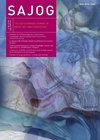女性对妊娠期糖尿病经历的描述——南非视角
IF 0.4
Q4 OBSTETRICS & GYNECOLOGY
引用次数: 5
摘要
背景考虑到受妊娠期糖尿病(GDM)影响的非洲妇女的观点,可能有助于制定对文化敏感的干预措施,以解决这一公共卫生问题。客观的确定受GDM影响的南非城市土著妇女的个人经历、挑战、应对策略和健康决策。方法。焦点小组讨论期间记录了先前受GDM影响的非洲城市妇女(n=10)的经历。糖尿病会话地图教育工具用于促进讨论。会议进行了录音、转录和主题分析。后果参与者在诊断为GDM时经历了震惊和恐惧,但家庭支持和与同龄人分享他们的经历可以缓解焦虑。他们意识到三级医院和社区卫生诊所对GDM诊断程序的实施不一致,这加剧了他们的困惑。尽管他们最初很难适应被认为不愉快的饮食,但采用更健康的生活方式被认为是GDM诊断的积极结果。健康的生活方式改变在产后得到了部分保留,据报道对其他家庭成员产生了积极影响。参与者几乎没有意识到他们患糖尿病的长期风险以及定期随访筛查的必要性。出乎意料的是,大多数参与者一致认为,艾滋病毒阳性比糖尿病患者压力更小。结论参与者认为HIV阳性比GDM更可取,这可能反映了测试前咨询不足、健康信息不一致、筛查实践不一致以及医疗专业人员的支持不理想所造成的痛苦。本文章由计算机程序翻译,如有差异,请以英文原文为准。
Women’s accounts of the gestational diabetes experience – a South African perspective
Background. Considering the perspectives of African women affected by gestational diabetes mellitus (GDM) may facilitate the development of culturally sensitive interventions to address this public health concern. Objective. To identify the personal experiences, challenges, coping strategies and health decisions made by urban indigenous South African women affected by GDM. Methods. The experiences of urban African women ( n =10) previously affected by GDM were documented during focus group discussions. The Diabetes Conversation Map educational instrument was used to facilitate discussions. Sessions were audio-recorded, transcribed and thematically analysed. Results. Participants experienced shock and fear on diagnosis of GDM, but family support and sharing their experiences with their peers provided relief from anxiety. They were aware of the inconsistent implementation of GDM diagnostic procedures at tertiary hospitals and community health clinics, which exacerbated their confusion. Despite their initial difficulty in adjusting to a diet perceived as unpalatable, adopting a healthier lifestyle was considered a positive consequence of a GDM diagnosis. Healthy lifestyle changes were partially retained post partum and were reported to have a positive effect on other family members. The participants had little awareness of their long-term risk of developing diabetes mellitus and the need for regular follow-up screening. Unexpectedly, the majority of participants concurred that being HIV-positive would be less stressful than living with diabetes. Conclusion. Participants viewed being HIV-positive as preferable to having GDM, which may reflect the distress caused by inadequate pretest counselling, inconsistent health information, inconsistent screening practices and suboptimal support from healthcare professionals.
求助全文
通过发布文献求助,成功后即可免费获取论文全文。
去求助
来源期刊

South African Journal of Obstetrics and Gynaecology
Medicine-Obstetrics and Gynecology
CiteScore
0.40
自引率
0.00%
发文量
5
审稿时长
15 weeks
期刊介绍:
The SAJOG is a tri-annual, general specialist obstetrics and gynaecology journal that publishes original, peer-reviewed work in all areas of obstetrics and gynaecology, including contraception, urogynaecology, fertility, oncology and clinical practice. The journal carries original research articles, editorials, clinical practice, personal opinion, South Africa health-related news, obituaries and general correspondence.
 求助内容:
求助内容: 应助结果提醒方式:
应助结果提醒方式:


